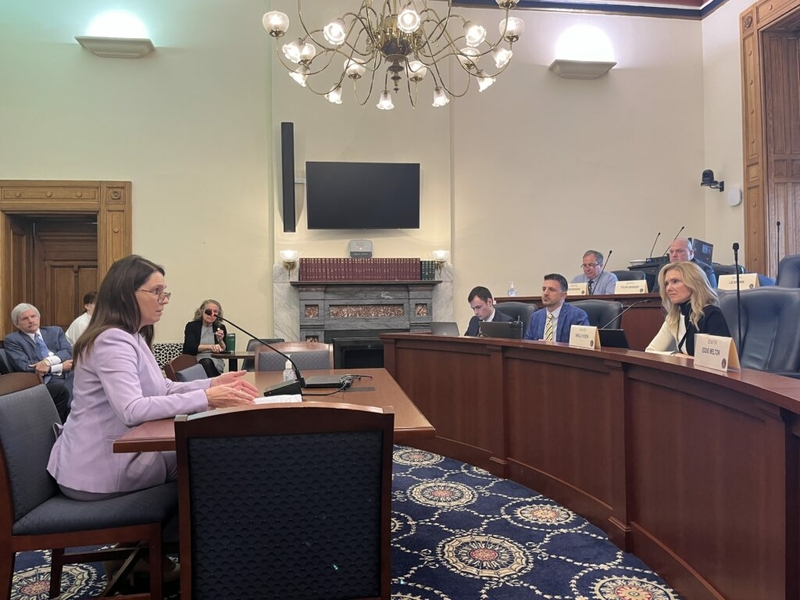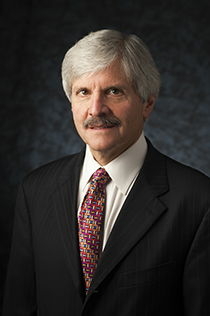Senators question bill to allow pharmacists to prescribe birth control

A bill that would allow pharmacists to prescribe birth control to Hoosiers saw some opposition in a Senate health committee after easily passing the House last month.
Supporters contend that many Hoosiers live in areas with physician shortages but nearly all live within a few miles of a pharmacy. Slightly more than half of Indiana births are the result of an unintended pregnancy according to supporters and advocates maintain that this would increase access to popular contraceptive options like hormonal implants or pills.
Bill co-author Rep. Rita Fleming, a retired OB-GYN, emphasized the importance of this legislation, which 24 states have adopted and eight other states are considering.
“Doctors’ offices are not open on weekends, in the evenings, or on holidays. Most women of reproductive age work outside of their home so it’s very difficult for them to make an appointment. In my office, sometimes they sat for an hour or so while I was delivering a baby,” Fleming, D-Jeffersonville, said. “They want access to birth control. We know in states that have passed similar legislation, the unintended pregnancy rate has decreased and the number of abortions has decreased.”
Committee member responses to the bill
Two Republican committee members – northeastern Indiana Sens. Liz Brown and Tyler Johnson – consistently peppered supporters, questioning why pharmacists should have this authority and whether it would have any impact on the state’s abysmal maternal mortality rate.
Brown said birth control couldn’t be that effective if half of women seeking abortions reported using contraceptives during the month of their conception. Johnson, a physician, said he didn’t understand how pharmacies could have more availability. He also didn’t know of a town with a pharmacy but no doctor.

During their barrage of criticism, fellow Republican Sen. Jean Leising praised the bill for increasing access in her rural district – where she said just three of her seven counties had a hospital with OB-GYN services. Roughly one-third of Indiana’s counties are considered obstetrics deserts with few specialized providers.
“I know people that when they start going into labor, they go toward the hospital where they’re going to deliver and find a park or a nice place to sit in their car when they’re beginning labor because they don’t know how fast they’re going to move,” Leising, R-Oldenburg, said.
“I think it’s sometimes hard for everybody – even in this committee – to understand that there are serious access issues. That’s just for having the babies, much less for the contraception.”
Pharmacists, doctors share support for the bill
Pharmacist Veronica Vernon, a professor at Butler University and president of the Indiana Pharmacy Association, said there are communities where pharmacists are the only healthcare provider, helping with smoking cessation and immunizations.
Other states that had enacted similar legislation actually saw cost savings, since billing for pharmacists is less than physician fees.
“In one state, pharmacists wrote 10% of all new Medicaid prescriptions in one year for self administered hormonal contraception… this saved the state $1.3 million by avoiding 51 unintended pregnancies,” Vernon said.
As a safety precaution, the bill requires pharmacists to refer a patient to a provider and can only prescribe birth control for up to a year. In the state mentioned above, 90% of patients did eventually schedule with a primary care provider, Vernon said.
Criticisms about the bill
Even the bill’s supporters had suggestions for improvement, including former state health commissioner Dr. Richard Feldman.
“Now, more than ever, it is important to prevent unwanted and unintended pregnancies. I think most everyone would agree that pregnancy prevention is much more desirable than addressing an unwanted, unintended pregnancy after it occurs,” Feldman said, representing the Indiana Academy of Family Physicians. “And despite some discussion… three elements are missing.”
Feldman said his organization wanted additional requirements for pharmacists, including: mandating blood pressure checks as part of the screening process, provider referrals if health issues are identified (either in the initial screening or related to the birth control) and sharing local resources to find primary care providers.

“The experience in other states where this legislation has been enacted demonstrates that, when done carefully and thoughtfully with these kinds of safeguards in the bill, pharmacist prescribing of self-administered birth control is very safe,” Feldman said. “We need to do everything we can to increase access.”
One of the state’s largest religious organizations, the Indiana Catholic Conference, opposed the bill, saying it risked women’s health and that Hoosiers could visit multiple pharmacies to bypass the one-year limit.
“Hormonal contraceptives, despite widespread use, still pose significant health risks for women… we should more carefully consider the complicated multitude of risk factors associated with these drugs,” said Alexander Mingus, the organization’s associate director.
Mingus also said the widespread availability of contraceptives “further facilitated” extramarital sexual relationships.
Knowing that the committee may vote to advance the bill over his organization’s objections, Mingus requested that pharmacists also detail natural family planning and fertility awareness methods in their efforts.
“Recognizing that a pharmacist is an important access point for healthcare, especially in underserved communities, it makes sense that we would provide a fuller range of options to best fit a patient’s needs.”
The committee only heard testimony on the bill Wednesday but plans to consider amendments and vote next week.








